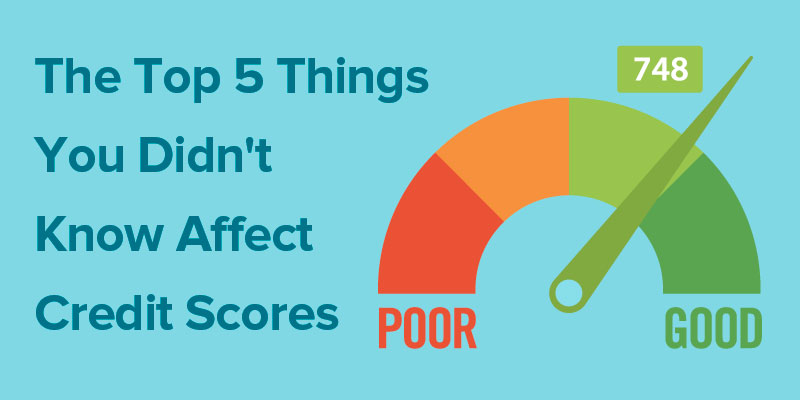When purchasing or refinancing a home, your credit score is a crucial component of your financial health. With exemplary credit, you will be offered the best loan programs from your mortgage company and have to jump through as little hoops as possible.
Yet understanding exactly what factors affect credit score can be tricky. Of course, making payments on time --particularly credit card and loan payments--is important. But did you know that so is following the very specific protocol demanded by your gym when you finally admit that your membership has been –and will ever remain–unused?
Here are the top 5 things you had no idea affected your credit score:
1. Unpaid library fines.
In the world of seemingly insurmountable debt like student loans, sometimes the smaller bills seem almost cute. Yet, libraries will sent unpaid fines to collection agencies when ignored, which casts a black mark on your credit score. It’s like ten bucks. Just pay it.
2. Medical bills.
Okay, these bills are not so cute, but they are important to take control of.
Tip: Hospitals and medical offices will often work with you if you contact them directly and explain financial circumstances that can prevent from full or on time payments. They might either put you on a payment plan, or reduce the charge significantly.
3. Traffic Tickets.
Have you been surprised with a red light camera ticket in the mail? After you get over the unpleasantness of this particular surprise, pay the fine immediately. Traffic tickets increase with time. And traffic tickets that are completely ignored over time can result in a report to a collection agency, as well as the suspension of your driver’s license.
4. Running Your Credit.
Credit checks have a negative effect on your credit score. When you apply for credit cards, to finance purchases like Internet services, or even a cell phone, they will often run your credit.
Tip: When they ask whether they can run your credit, ask if they can run a soft, rather than a hard, inquiry. Soft inquiries should provide them with the info that they need without harming your credit score.
5. Closing out your credit cards.
Credit cards are a primo way to increase your credit score– if used properly. It could be tempting to close out cards that you no longer use, but this could actually do more harm than good. Here’s the reasoning: your credit score is built on a ratio of available credit to utilized credit. So if you have used up less credit than you have available, it looks favorably on you. If you close out those cards, you will affect the ratio of credit used to credit available. Also, credit history is another component that is considered. If you close out an older card, your credit history will be that much shorter.

















